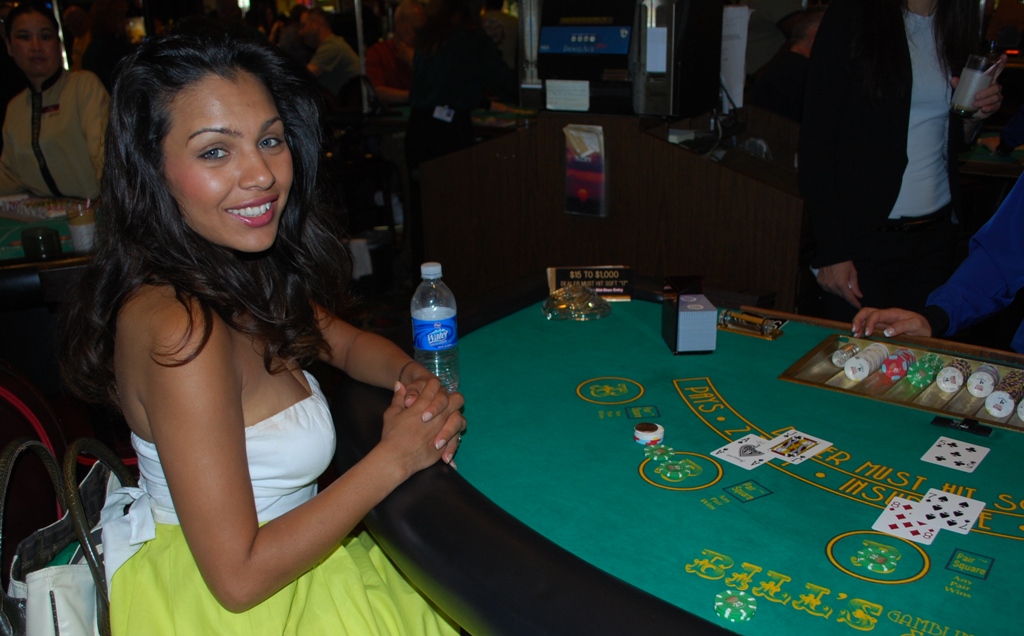On this page
A strategy tailored for single deck games where the dealer stands on a soft 17.
Introduction
This section provides an overview of the strategy dependent on the composition of hands in a single deck scenario, where the dealer stands on a soft 17. Currently, it seems no physical casinos adhere to these rules globally, but at the time this page was created, they were occasionally found in various online platforms.
This page draws from the now-inactive Boss Media blackjack guidelines, which include the following points:
- Single deck
- Dealer stands on soft 17
- Dealer peeks for blackjack
- Double after split allowed
- Player may split only once
- No surrender
- Split aces get one card only
Utilizing the standard total-dependent strategy under the Boss Media regulations gives the player an edge of 0.11%, whereas the house retains a 0.13% advantage. Microgaming These strategies have been analyzed in my reviews. The total-dependent basic strategy focuses on the player’s card total to determine the best move, but there are instances, particularly in single-deck scenarios, where specific card combinations necessitate different actions. For instance, it's advisable to stand when holding a 13 against a dealer showing a 2; however, with a 10 and a 3 against the same dealer's card, hitting would be the preferable move. What follows are tables illustrating the composition-dependent strategy, which accounts for the specific cards in the player’s hand. Strategies remain identical when there are three or more cards involved. Implementing these composition-dependent tactics can reduce the house edge by 0.04%, leading to a player advantage of 0.1541% under Boss Media's framework. Boss Media and Microgaming The tables provided are suitable under the Boss Media rules and can also apply to Microgaming rules, except players should refrain from doubling down on an 11 or splitting eights when facing a 10 or an ace due to the dealer not checking for blackjack under Microgaming Classic Blackjack. Additionally, doubling down on 8 is not permitted.
Be aware that the six-card table presents some unrealistic scenarios, such as dealing with five aces. An example would be a player with A-A-A-A-3-9 against a dealer showing an ace. These cases should be disregarded.
Strategic Exceptions Based on the Number of Cards
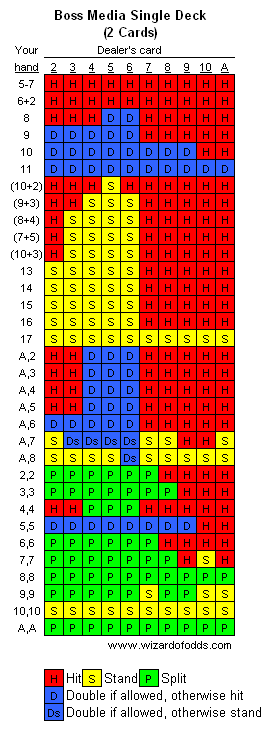
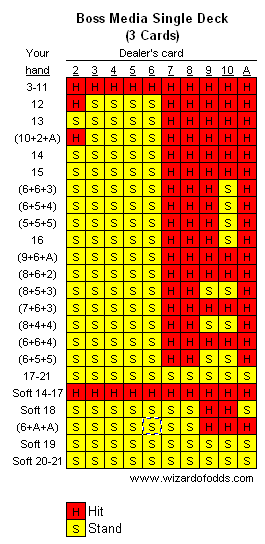


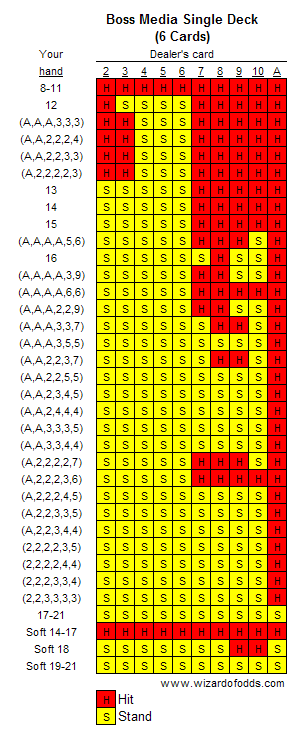
If the information in the tables is overwhelming, you can still achieve nearly similar effectiveness by using the simplified tables and lists provided, which highlight scenarios where optimal plays depend on the number of cards in the player's hand, based on a single-deck game where the dealer stands on soft 17.
There are only minimal exceptions noted for scenarios involving 2 to 8 decks, outlined as follows.
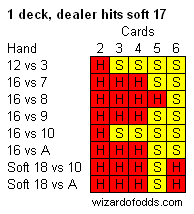
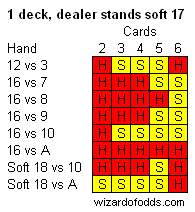
For two decks where the dealer stands on soft 17: Stand on soft 18 against an ace when holding three or more cards.
- Always: Stand on 16 vs 10 with 3 or more cards.
- In four or six decks where the dealer stands on soft 17: Stand on soft 18 against an ace with four or more cards.
- Over the years, several players have identified gaps in my charts, and here are a few I can recall.
Acknowledgements
Scott E. (Scott asserts that the player edge is merely 0.1531% under Boss Media regulations.)
- "Tank\"
- Splitting Strategies for Players Betting on Another's Behalf
- Don Schlesinger
Internal Links
- Blackjack Side Bets
- Introduction to Card Counting
- The Hi-Lo Count
- The Wizard's Ace-Five Count
- When to Surrender in Blackjack
- Value of a Free Ace
- Dealer Exposes Both Cards
- Comparing Total-Dependent Strategies with Composition-Dependent Strategies
- Double after Splitting Aces Allowed
- Continuous Shuffling Machines
- Cut Card Effect
- Variance in Blackjack
- 678 and 777 Bonuses in Blackjack
- Risk of Ruin in blackjack
- Expected Returns When Dealing with Infinite Decks
- Dealer Odds in Blackjack according to U.S. regulations
- Dealer Odds in Blackjack in accordance with European regulations
- Estimating the Number of Decks Used in Online Blackjack Games
- Effect of Card Removal in Blackjack
- Blackjack Expected Values
- Composition-Dependent Strategy for Single Deck Games where the Dealer Hits on Soft 17
- A strategy tailored for single deck games where the dealer stands on a soft 17.
- Composition-Dependent Strategy for Double Deck Games where the Dealer Stands on Soft 17
- Accurate mathematical strategies and insights for various casino games such as blackjack, craps, roulette, and many more.



